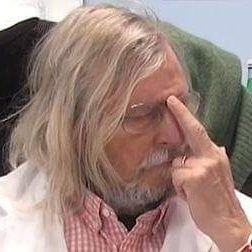Not to squash the party, but it’s in vitro effects are well documented for a loooong time now.
In VIVO anyone? We do have some, but we need all the results on that now. Seems to have been used on thousands of patients show us the numbers.
Not to squash the party, but the distinction between in vitro and in vivo is well documented for a loooooooong time now. Pointing out this distinction doesn't really add anything new to the world of knowledge and really just pollutes the thread.
The evidence and anecdotes and information, sloppy and imperfect as it may be, should still be shared and I hope others don't resist sharing information just because a few people make themselves feel important by pointing out a boringly obvious distinction.
But meanwhile, for people interested in actually doing interesting contributions to the advancement on this issue:
French researcher posts successful Covid-19 drug trial
And yes, we can see that it is a small sample size. and I never heard of "French Connexxion" either or the other french sites that are carrying this. And if you find a picture of Raoult you will think he should be working on flux capacitors rather than infectious diseases. The whole thing is probably a bitcoin scam . . . But there it is.
Also see Coronavirus : la chloroquine est-elle vraiment un remède miracle ?



